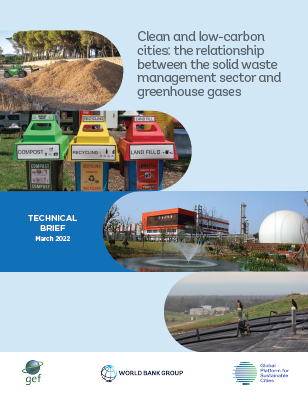Clean and Low-Carbon Cities: the Relationship Between the Solid Waste Management Sector and Greenhouse Gases
March 27, 2022
Municipal solid waste contributes to the generation of GHGs, mainly methane (CH4) and carbon dioxide (CO2). The amount of GHG emissions from waste is correlated with the quantity of waste and depends on the waste composition and the waste management system in place. Large waste volumes and inadequate waste management systems lead to higher emissions in the atmosphere. In the past many decades, the quantities of waste generated globally have been increasing at an alarming pace while the state of waste management continues to lag in capacity and effectiveness. In a business-as-usual scenario, both waste quantities and emissions from waste will continue to increase. Conversely, achieving reduction in emissions from waste requires, at a minimum, stabilizing or better reducing the quantities of generated waste along with a drastic improvement in how it is managed. This short briefing note provides a quick summary on the relationship between municipal solid waste and GHGs, and a path for curbing emissions from waste.


